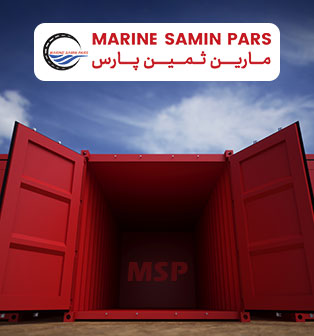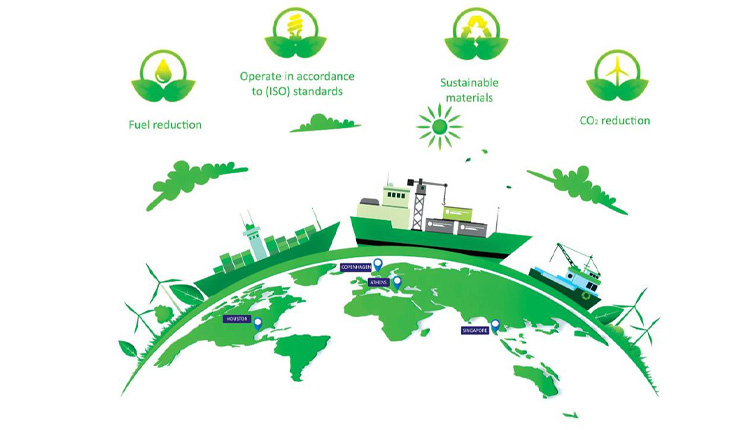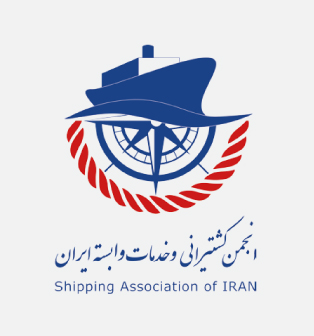The maritime industry is in a shock therapy. Years of mishap, environmental catastrophes and cataclysmic policy-making errors have given way to increased awareness of sustainability issues by governments, international organizations, financial institutions, stakeholders, investors and consumers and the industries that relate to the maritime sector. The pandemic has also been an added inducement for the maritime industry to re-examine the way in which supply chain management, logistics and operational efficiency is conducted. Business as usual is no longer a viable alternative for the maritime industry and it is likely that those who do not take sustainability seriously will be met with increased fees, less favorable financing opportunities, and in the worst case, significant fines. Today, sustainability is considered a top five Challenge in the Global Maritime Industry!
The international maritime industry plays a key role in embedding sustainability in business operations and economies across the globe. By trying to meet the sustainable development goals (SDGS) set by the United Nations, without jeopardizing efficiency, this transition stage challenges leaders and managers in the maritime industry who encounter the complex realities of this magnificent task. As current maritime operating models are far from being efficient and sustainable, a global regulatory framework to facilitate sustainable shipping is felt and needed more than ever. Luckily, there has been a significant shift in how shipping companies address sustainability and sustainable shipping is moving forward to become part of global corporate strategy. There is an exciting time ahead for sustainable shipping.
Sustainability is most often defined as meeting the needs of the present without compromising the ability of future generations to meet theirs. It has three main pillars: economic, environmental, and social; and they are informally referred to as people, planet and profits. Sustainability means understanding the future risks of your establishment, your workforce and your industry and to act amply on those risks. The ongoing developments in shipping invariably imply how the future maritime industry will have to adjust to sustainability in order to simultaneously achieve financial, social and environmental benefits all together. The international maritime industry plays an important role in contributing to global sustainability revolution as one of its key stakeholders. There is a need to recognize and encourage action on these three bedrocks to sustainability, by the way of sharing encouraging information on its success story and best practices.
Economic sustainability can be achieved through digital solutions alongside innovative management and business efficiency approaches while remaining profitable. One of the growing drivers to sustainable shipping is the awareness of financial institutions. Financial institutions who are willing to invest in fleet modernization and greener technology have become more competitive overtime due to increased fuel efficiency and through recognition of the benefits of sustainable financing initiatives that have been implemented in recent years. Some financial institutions are even becoming unwilling to fund unsustainable industries as they prefer a ‘greener’ portfolio.
Environmental sustainability deals with stricter compliance to environmental standards such as health, safety and environmental protection, decarbonization, fuel-efficient vessels, supplier management, energy efficiency and emissions reduction. In order to provide a reliable service in the most efficient manner, the maritime transportation systems must deliver safe, secure and reliable transport of goods across the globe, while minimizing pollution, maximizing energy efficiency and ensuring resource conservation. Maritime industry has a critical role in preserving earth’s natural resources and the community’s well-being. Although the costs of fleet modernization are significant, pioneers in shipping companies need to mitigate risks and optimize opportunities through investing in greener technology. In the long term, those who do not make the necessary green investments may prove to be less competitive, as their ships become less energy efficient, and they might face changing market expectations that could punish them.
Social sustainability is where organizations are aware of societal demands and are taking the need for diversity and inclusion more seriously. While maritime activities take place in an international arena, with entities and individuals that come from a variety of backgrounds, and among diverse and sometimes conflicting chases, the way people are treated has become the single most significant factor in evaluating social responsibility. The great exposure and interaction with international, regional and local cultures, regulatory regimes and stakeholder’s interests have added to the importance of social sustainability. The economic benefits of diversity and inclusion can lead to efficiency through attracting the right people for future industry needs. Needless to say that despite the vital importance of the human dimension of sustainability, less attention has been paid to it, compared to environmental and economic dimensions.
A sustainable maritime transportation system requires coordination at national and international levels. A well-organized administration that cooperates internationally and promotes compliance with global standards, supported by institutions with relevant technical expertise is needed. For sustainable maritime development to flourish there will be a distinct role for governments, industry, international organizations and all public and private actors in the maritime transportation system. All actors will need to collaborate with the aim of achieving the three dimensions of sustainable development across the maritime transportation system. In the light of sustainability, the shipping industry will affect environmental, social and economic change at the grass root level to create shared values. Maritime industry’s collective efforts in raising efficiency and productivity towards resource preservation will improve relationships with stakeholders, alongside reduced costs and improved performance.















